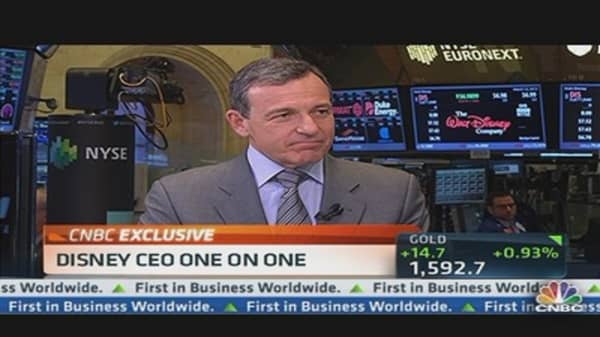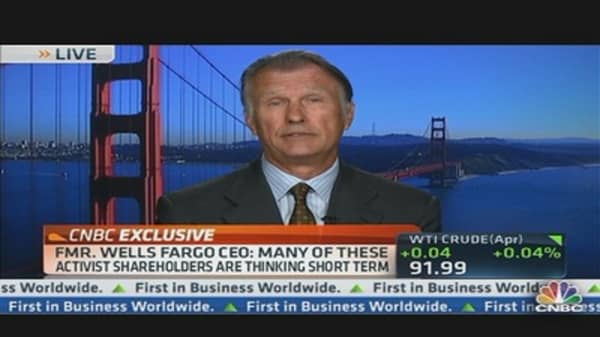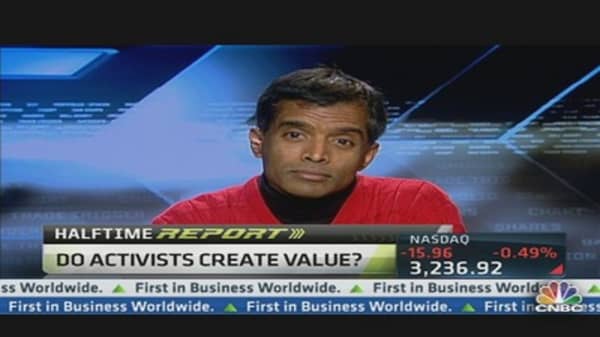"What's unusual is meeting season doesn't really get underway until mid-April," said Institutional Shareholder Services Executive Vice President Patrick McGurn. But with three bellwether meetings—Apple, Walt Disney, and Hewlett-Packard—this month, it "bodes for a busy season driven by a lot of ad hoc activism," he said.
McGurn, who is also special counsel at the proxy services firm, said there could be proxy fights at Agrium, Danone, Hess, Timken, and Transocean.
Hedge fund Jana Partners has proposed a slate of five new directors for election to Agrium's board and is pushing the company to spin off its retail farm-equipment arm. At Transocean, billionaire investor Icahn wants to see a big dividend increase.
There is also a "no-vote" campaign targeting directors at Hewlett-Packard's annual meeting on March 20. Shareholders are being urged to oppose the re-election of some HP board members after the controversy surrounding the $11 billion acquisition of Autonomy. HP rules require board members receive a majority vote even if they run unopposed.
(Read More: Hewlett-Packard Walloped by Charge Relating to Fraud)
ISS's McGurn noted that shareholder resolutions account for a relatively smaller part of the shareholder activism pie as "a lot of the engagement that has taken place has taken place off proxy."
Lee Graul, a partner in the corporate governance practice at professional services firm BDO USA, said large investors tend to go public with differences they have with management when they don't get the response they were looking for in private conversations.
What we see "frequently is shareholders take the internal approach first," Graul said. Apart from the ballot initiatives, BDO expects corporate management to also face questions about the economy, health-care reform, the sequester, and M&A plans this season.







